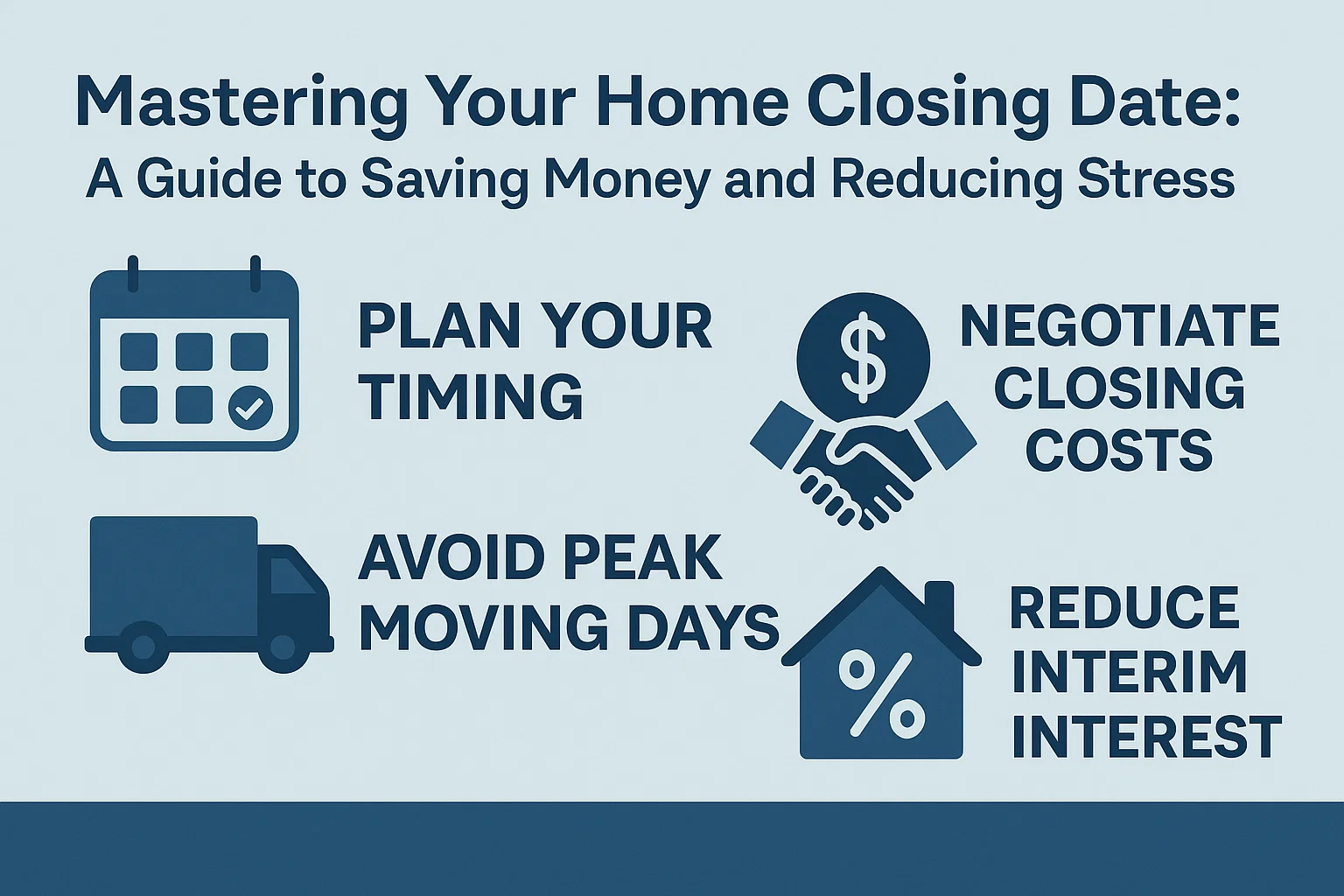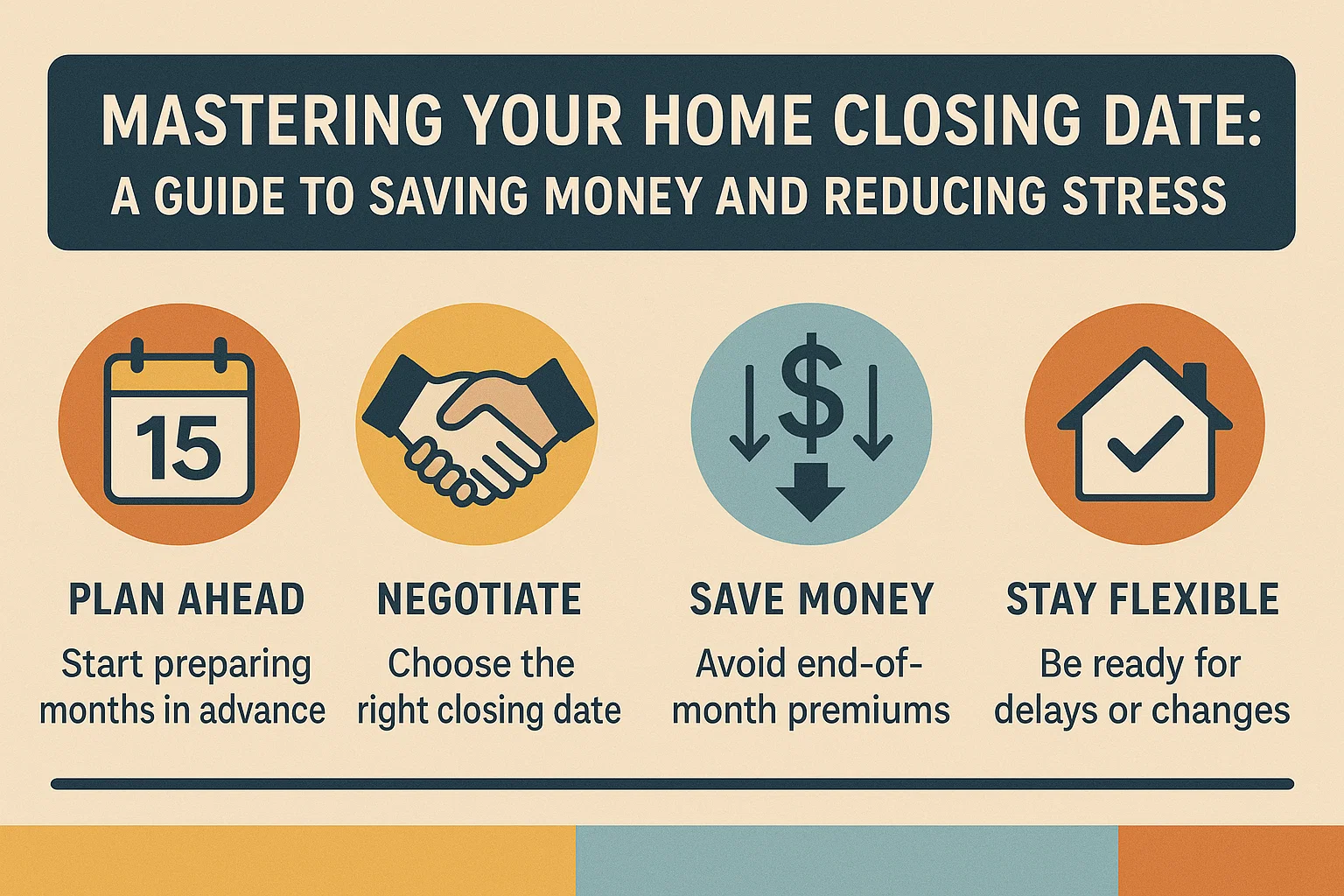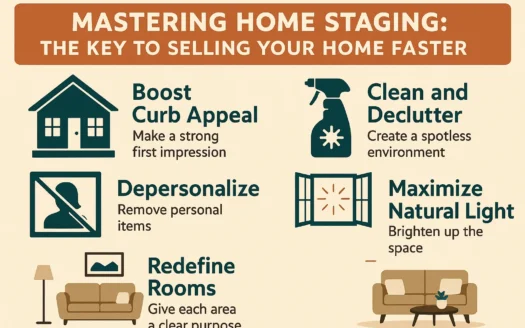Mastering Your Home Closing Date: A Guide to Saving Money and Reducing Stress

Mastering Your Home Closing Date: A Guide to Saving Money and Reducing Stress
In the whirlwind of purchasing a new home, critical details that could save you time and money are often overlooked. One such detail is selecting the ideal closing date. Here’s how to navigate this decision strategically:
Key Strategies for Choosing Your Closing Date
1. Give Yourself Time
Most closings occur 30–45 days after an accepted offer. If you have a deadline—like a lease ending or movers booked—aim to close at least two weeks earlier. Delays in lender approvals, inspections, or paperwork are common, and a buffer ensures you won’t face last-minute scrambles.
2. Lock In Your Interest Rate
Mortgage rates are typically locked for 30–60 days. Confirm the exact duration with your lender and ensure your closing date falls within this window. While rate locks can sometimes be extended, this often comes with added fees.
3. Close Late, Save More
Closing near the end of the month can reduce upfront costs. Here’s why:
- Mortgage payments are made in arrears, meaning your first payment is due on the first day of the second month after closing.
- You’ll pay daily interest from the closing date until the month’s end. A late-month closing minimizes this prepaid interest, potentially saving hundreds of dollars.
Common Delays to Anticipate
Even with careful planning, unexpected hurdles can arise. Stay ahead of these potential setbacks:
- Appraisal issues: A low valuation can derail loan approval.
- Insurance complications: Difficulty securing home insurance.
- Title problems: Unresolved liens or ownership disputes.
- Inspection surprises: Major defects requiring repairs or renegotiation.
Final Tips for Success
Work closely with your mortgage advisor and real estate agent to align your closing date with financial goals and logistical needs. By prioritizing flexibility, understanding interest calculations, and preparing for delays, you’ll secure a smoother transition into your new home.




